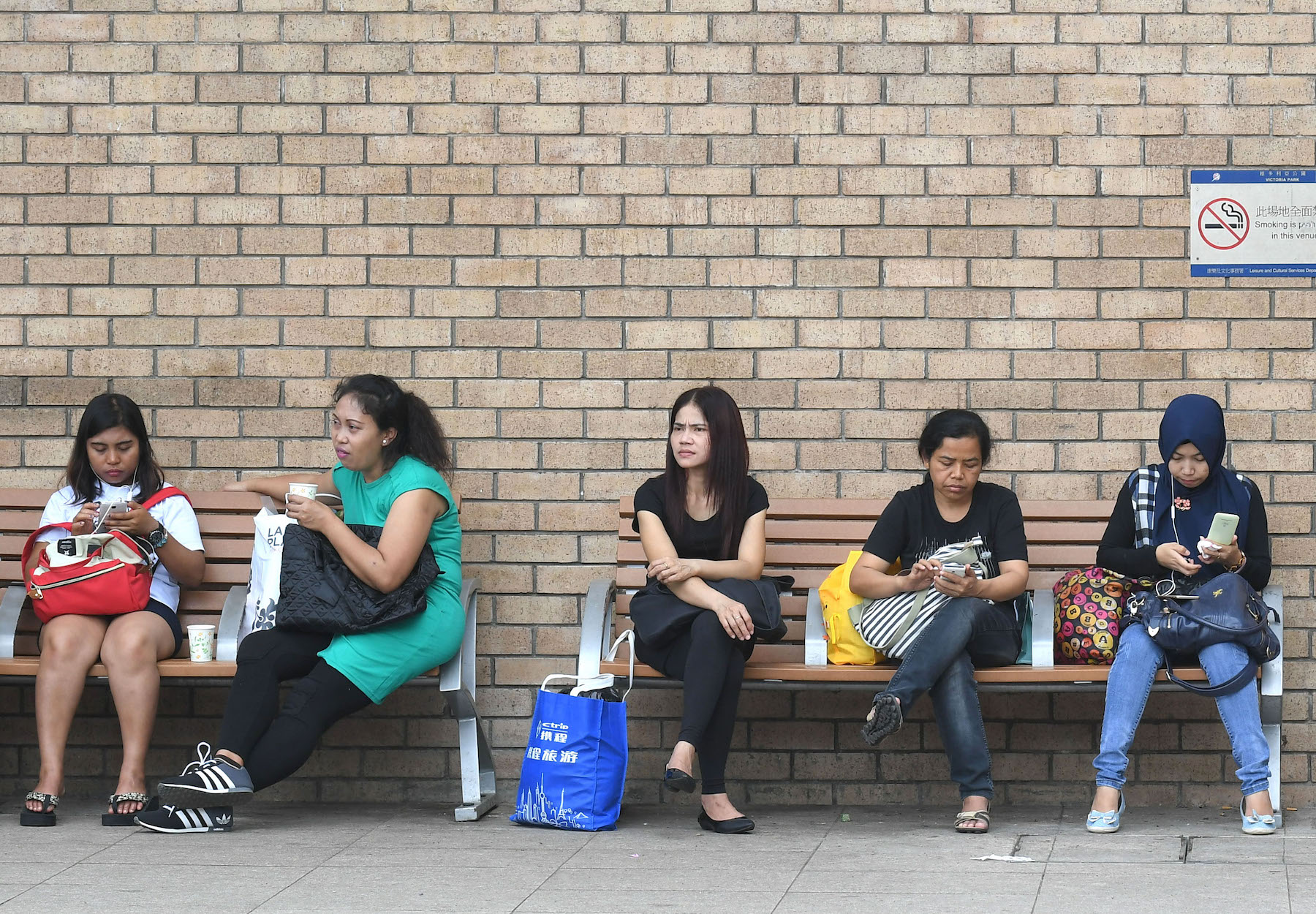A Filipino woman challenging the Hong Kong government’s mandatory “live-in” policy for migrant domestic workers has had her case overturned.
The Court of Final Appeal ruled against Nancy Almorin Lubiano on Monday, who said that the controversial restriction, which states that the city’s 380,000 domestic workers must live with their employers, opens the door for abuse and exploitation.
The defense said the “live-in” rule increases the chances of employers forcing workers to work on their day off. By law, domestic workers in Hong Kong are entitled to one rest day a week.
A lawyer representing the Immigration Department rebutted the claim, asserting that workers can refuse to work or find another employer, HK01 reported.
Since 2003, domestic workers—mostly from the Philippines and Indonesia—have been required to live with their employers. The regulation was introduced to prevent workers from breaching their contracts and seeking other part-time opportunities.
Read more: We all need to stop using the terms ‘maid’ and ‘helper’ | Opinion
A transgression of the policy is punishable by a fine of up to HK$150,000 (US$19,350) and 14 years’ imprisonment.
But migrant workers’ groups say the rule is a violation of rights, and also problematic given the small size and cramped conditions of most Hong Kong apartments. Many workers lack privacy as they do not have their own room and are have no choice but to bunk with their employer’s children, or even in closets or storage spaces.
The COVID-19 epidemic, which began in January, has also given more excuses for employers to force their workers to stay home on their rest days.
Activists have long accused the government of treating domestic workers, who take on household and childcare duties so that their working employers can focus on their careers, as second-class citizens. Foreigners who live in Hong Kong for a minimum of seven years are given citizenship, a right that domestic workers are not afforded.
A 2019 report by Hong Kong charity Enrich and the global financial information company Experian found that migrant domestic workers contributed about HK$98.9 billion (US$12.6 billion) to the economy in 2018.





Reader Interactions